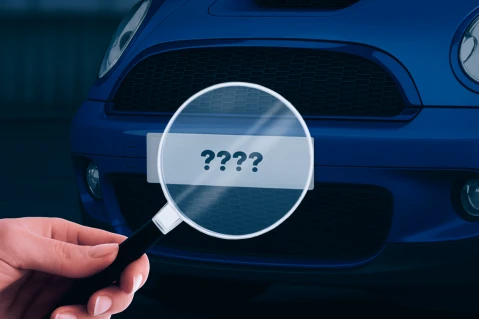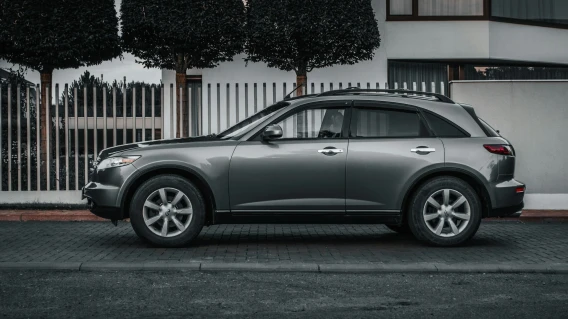If you're looking to buy or sell a used car, you may be wondering what goes into determining its value.
Car values are calculated using a lot of different criteria. Most of these criteria depend on things you won't be able to change, but some can help you get the most for your car—or, if you're buying, how to find the lowest price.
But there are many other reasons why you should understand the history of a car and its value that can be beneficial in the long-run. Here are a few ways sellers calculate used car value and what that means for your buying or selling experience.
Make and Model
When buying or selling a used car, the first thing people are looking at is the make and model. Whether the buyer has a specific type of car in mind or all they know is that they want a 4 door SUV, the make and model will determine the vehicle's initial value.
If a buyer doesn't have a specific make or model in mind, the next few factors are key.
Age
The next thing that helps calculate car value is the car's age.
Car depreciation plays a huge role in valuing the car. Just 3 years after buying a new car at retail value, you lose around half of that. After 5 years? The car is only worth 40% of the original price.
And obviously, a new car is usually valued higher than an old car, though there are some contingencies with this.
A new car in all-around bad condition, with a couple of accidents under its belt and over 100,000 miles on it, isn't going to be listed the same as a new car that's been treated well.
Conversely, a car that's over 5 years old but has been sitting in a garage for the majority of its life may be priced low because of its age but be in near-perfect condition. If you're buying, this is something you may want to factor in.
Condition
The interior, exterior, and mechanical condition of a car matter not only for efficiency purposes but simply because nobody wants a beat-up car.
A car, truck, or SUV in good condition will have no mechanical problems. If you're looking to sell a car, make sure any mechanical problems are fixed before you attempt to list it for sale. This will maximize your profit and be more attractive for buyers.
Dents and scratches on the exterior and tears and stains on a car's interior will immediately lower its value. Taking care of your car as soon as you buy it is the first step in preserving its value.
History
Knowing what's happened to a car before you buy it is vital. Not just so you're aware of any accidents or underlying problems, but because the seller may not have been truthful about some crucial information.
Before you purchase a used car, you should always check the vehicle's VIN. You can tell if there were past odometer readings and if it's been tampered with if the car was registered as stolen, and even how the car was used. Be wary of title washing and ensure that you know if the car has salvage records.
Knowing everything about a car before you buy it is important because it protects you if the seller isn't honest or doesn't know everything about the car. It can even be crucial to determining if the vehicle is safe for driving. This way, you can make informed decisions about purchasing the vehicle.
Accidents
When checking the VIN, you should also come across whether the car has been in any accidents or natural disasters that may prevent it from running properly.
Sometimes the effects of a flood or car accident can present themselves later on down the line. You don't want to be held responsible for damages made before you owned the car.
Alterations and Accessories
Any alterations made to the stock vehicle will affect the car value. Unless you're selling to a niche community, accessories like spoilers, decorative rims, and lifted suspensions are often devaluing factors.
People looking to buy cars want ones that have no added accessories. However, certain alterations can increase the value of a car. Some of these include legal tints, new tires, and leather upholstery.

Color
It's no surprise that car buyers tend to gravitate towards white, black, and silver car colors. These, along with red and blue, are the most common car colors.
Colors like green, yellow, purple, and orange don't sell quickly and usually require a price reduction. The car market is based on demand; if nobody is willing to buy those colors, the value will reflect that.
Mileage
The little number on the odometer affects a car's value more than it lets on. Even if there isn't anything wrong with a car, the odometer is like a countdown until that car's dying breath.
As a buyer, you should always check the mileage before you purchase. The higher a car's mileage, the higher chance that something will break or need replacing. More wear and tear= more money spent at the mechanic.
Transmission
While this might seem obvious, cars with manual transmissions have become almost so obsolete that car buyers can forget to make sure the car they're purchasing is automatic.
Of course, this affects the auto values as most people aren't looking to buy manual transmission vehicles nowadays. Though, for well kept manual vehicles, this may be a good thing.
Though there isn't a huge demand for them, the people who want a manual transmission may be willing to pay more for it because they are so uncommon. This is especially true if it's in good condition and the make and model of their desired vehicle. Otherwise, automatic cars dominate the market.
Know Car Values Before You Buy
Buying or selling a used car can be a tricky process. There's a lot of uncertainty that goes into determining car values. Thankfully, you can alleviate the stress of buying a used car with EpicVIN.
Checking a car's history with EpicVIN before you buy can save you a load of problems down the road. Know what you're getting into with your new car and use our VIN report services. You'll never have to worry about paying too much for a car again!







